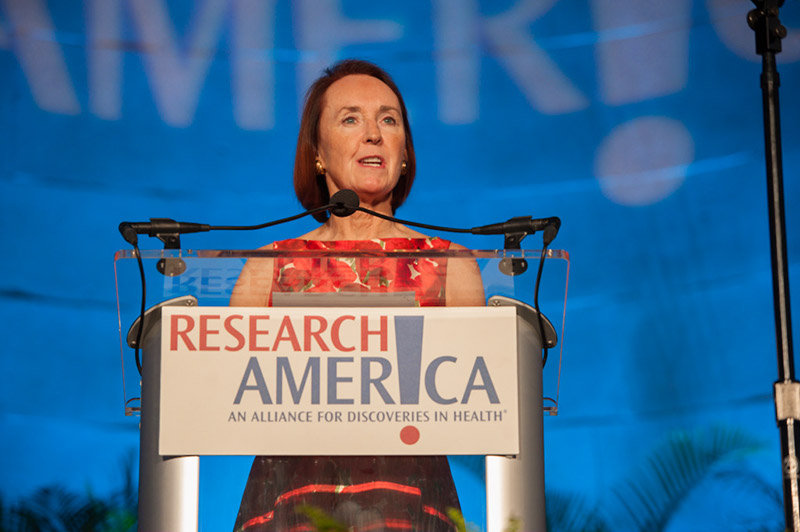Advocacy isn’t discretionary

The Total Solar Eclipse of 2017 was not only riveting, it was a reminder that Americans are as enraptured as ever by science. The challenge is not to convince the public that scientific exploration is meaningful, it is to convince them that scientific exploration is at risk.
Which brings me back, inevitably, to the federal budget. When they return from August recess, members of Congress face formidable budget challenges: to prevent default, they need to raise the debt limit. To prevent a government shutdown, they need to pass an FY18 budget bill. There are only 12 days in September when both houses of Congress are in session, and President Trump needs to sign these bills (or a combined bill) by September 30. To complicate matters, he is threatening to force a government shutdown if Congress doesn’t fund the border wall.
Congress is also under pressure to stabilize the individual insurance market by shoring up the ACA (Obamacare), a tightrope walk that has the feel of impossibility, but is fast becoming an imperative.
But that’s not all, or it won’t be if advocates push hard enough. As I have asserted in every letter for many weeks now, Congress must raise the FY18 budget caps or science funding will falter. There is no room under the current caps for advancing our nation’s strategic interests; there isn’t even enough room for stasis. The 2011 Budget Control Act (BCA), which put these caps in place, is a drag on our nation. Here is Center on Budget and Policy Priorities-produced background on the BCA that reinforced my determination to help untether our nation from the law’s outdated and out-of-touch strictures.
Any interest in writing an op-ed, blog post or LTE making the case for raising the caps or against a government shutdown? We’d be thrilled to help. Email Anna Briseno at [email protected].
For inspiration, here’s an op-ed Senator Jerry Moran (R-KS) penned about the importance of NIH. He writes “…we should make certain we continue to prioritize medical research and its ability to save lives tomorrow through today’s investments.” If the caps stay in place and the government shuts down, we will save fewer lives tomorrow.
Nor would the present be well served. An article in today’s New York Times about the reemergence of syphilis drives that point home. Consider the federal health care dollars our nation saves because CDC-supported health departments undertake the laborious, thankless job of tracing and containing infections like this one.
Another example: the Colorado State University Tropical Meteorology Project forecasts 16 named storms and eight hurricanes this season (science at work). And according to a recently released public survey, Americans fear natural disasters more — actually far more — than other broad-scale threats. It is always a mistake to shut down the government, but it is hard to imagine worse timing than hurricane season.
First responders like CDC are already grossly underfunded, in part because we take for granted the essential functions they fulfill, and in part because of the budget caps. But to let their budgets lapse altogether…
Advocacy isn’t discretionary.
Join our digital push to #RaiseTheCaps a two-day, concerted effort to convince Congress that a bipartisan budget deal is crucial. Mark your calendars for September 11 and 12, and keep an eye on our Facebook page, Twitter, and website for more info.
One final advocacy option: if you didn’t get a chance last week, urge your congressional delegation to champion repeal of the medical device tax. The lifesaving role these technologies play in cardiovascular care alone justifies removing a disincentive to their development.
When it comes to medical and public health progress, where is the road taking us? Are we even on the right one? What is a reasonable “endpoint?” How, and how quickly, can we reach it? At our 2017 National Health Research Forum on September 7 at the Newseum, we’ll be taking a critical look at the path we’re on and where we are on it. RSVP today and join the discussion!
Sincerely,
Mary Woolley




